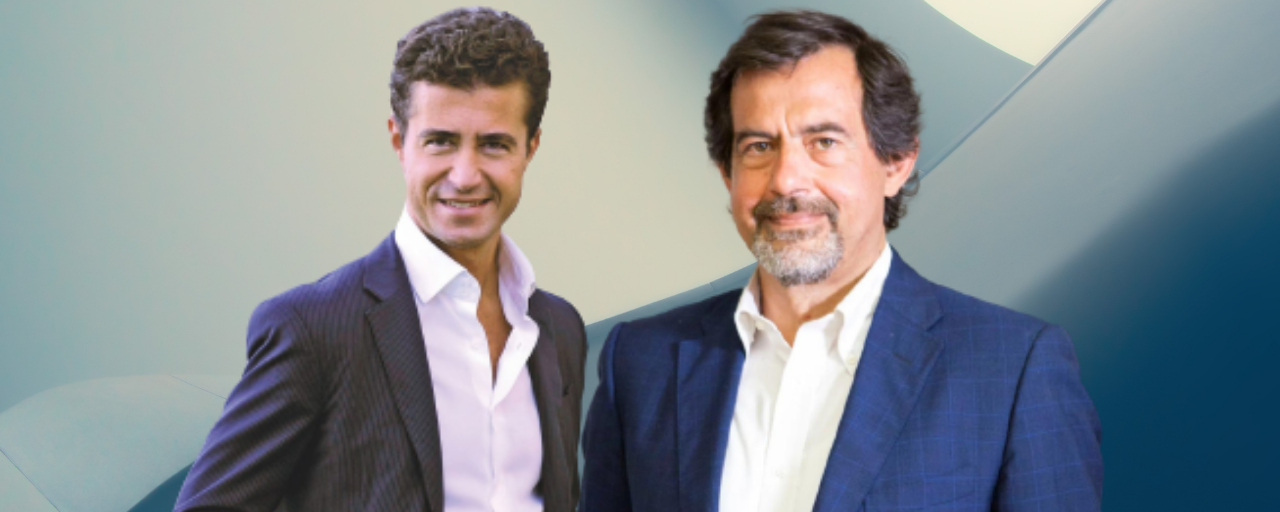De Guzzis, a manager and Business Angel, as well as CEO, Business Unit manager and Director in marketing, planning and strategy in both large groups such as Toro Assicurazioni, De Agostini Group and Invitalia, and in the world of SMEs in the sectors of art, publishing, insurance, luxury goods, has been a board member of IAG and has invested in more than 10 startups in his career. These include Musement, of which he was Champion and board member. A project born from the intuition of Alessandro Petazzi and his partners, Claudio Bellinzona, Fabio Zecchini and Paolo Giulini, united by a clear ambition: to create one of the most important online aggregators in the world in the proposal of artistic - cultural experiential activities dedicated to travelers.
Petazzi, where did Musement's dream come from?
Petazzi: "Preface: our story is not one of mythological garages, but rather of many sliding doors. I always knew that I wanted to be an entrepreneur, but during my university days I had convinced myself that I could only do it after a certain age and a certain apprenticeship. So I started my career with a more traditional, albeit important, path: after graduating in Business Administration at Bocconi University in Milan and at Copenhagen Business School, I worked for the United Nations in New York, followed by JP Morgan and London, and finally for the strategic consulting firm Bain & Co, in Italy. But I realized very early on that none of those paths, however excellent, was what I was looking for. So, I met my first "sliding door": the head of my team at Bain had worked at Omnitel (now Vodafone Italy) with Carlo Micheli and Silvio Scaglia, who in early 2000 were working on the creation of what would later become the giant Fastweb. I decided to quit the path I had started, then a promising career in one of the largest consulting firms in the world, to work with about 20 other people to set up an entirely new reality. I found myself being a store boy, and that was exactly what I was looking for. Working with Micheli and Scaglia was a fantastic school for me. I was entertained, stimulated, involved. During those years I had extraordinary experiences and met those who would become my future partners. I stayed at Fastweb until 2008, dealing with the TV and digital media division: we were among the first in the world to work on video-on-demand and streaming TV. Netflix was still sending DVDs by mail, just saying. After Swisscom's acquisition of Fastweb, however, the founders decided to get out, and shortly thereafter I too made the same decision. First, I founded ON CUBED, a consulting firm specializing in helping PayTV operators from various nations (such as SKY, UPC, Starhub, SiOL) and consumer electronics companies launch content and apps on various platforms, then in 2013 we decided to combine each other's skills and passions to found with Claudio, Fabio and Paolo what would become Musement. Paolo knew the art world very well, having worked in it for years, and he had many contacts in the museum world, and together we were convinced that creating a service that leveraged one of the strengths of Italianness in the world, namely tourism and culture, could allow us to create a truly global company. We had realized that the system of buying tickets for museums was very fragmented, hence the idea of creating a single online access point. Just think, at first, we wanted to call it We-Art, then we came up with Musement. A name that would make our fortune among foreign travelers: in fact, it recalled not only the idea of museums, but also the more cross-cutting idea of amusement, entertainment. I still remember the first purchase. It was made by a teacher from an American high school who bought a ticket to visit the Last Supper. Wow, we thought! That woman had given us confidence, in her eyes we were reliable even though we were still just an embryonic company! It was time to really believe in our idea, therefore, we decided to leave our other businesses and focus full-time on Musement."
De Guzzis, yours is a different story that intersects at one point with Petazzi's. Tell us how you approached the world of startups and IAG.
De Guzzis: "I've always worked in large groups, and they were wonderful experiences, but in which I would end up somewhat imprisoned within a single sector. I, on the other hand, wanted variety and innovation. What led me to the startup world, therefore, was my curiosity. But I did not want, as business angels, to just observe companies and make my bet for mere economic purposes. I wanted to get fully involved, from scouting to mentorship to the board. Therefore, when at a Luiss graduate dinner, Luigi Capello introduced me to IAG I immediately decided to join. And I have never regretted it. Together we have made a very beautiful and compelling journey, Musement is one of the most significant moments of this adventure."
What did you think when their project was submitted to you?
De Guzzis: "First of all, I thought very positively about their wanting to leverage Italian-ness. This is a piece of advice I always give to all startups: focus on an element of uniqueness and territoriality. Being Italian, if you know how to leverage that, can be an extraordinary key globally. Musement had managed to do that. Moreover, it had been able to differentiate itself with its team: I was faced with very competent people who knew how to put themselves on the line and rethink themselves, not backing down in the most difficult moments. This is a key aspect. I don't believe so much in the idea of visionary founders locked in garages. You bingo when you find a founder who is capable of great balance to deal with both moments of excitement and disappointment. A startup, in fact, is by its nature always unbalanced, experiencing high tensions. People have to be able to handle these phases."
Petazzi: "I agree. I'm always very surprised when you hear stories of startups funded with several billion dollars that then collapse and you find out, only later, that the founder had a compromising past or that his or her figure was not well liked in the company. That is precisely what due diligence is for, and our investors certainly did it very thoroughly. As for the ability to change and revise one's positions, that is what we did on several occasions, but on one. We had sinned in naivety in thinking that it was enough to invest everything in the museum system. After some time, in fact, we realized that the cost of acquisition for customers was too high compared to the conversion rate and the profit we were able to general from the average shopping cart. We realized, therefore, that we needed to broaden the offer, also because our customers were mainly tourists and travelers who would find a plurality of proposals interesting: the museum ticket, but also the guided tour or the trip out of town. The brand we had chosen - Musement - fortunately turned out to be flexible enough to accommodate this broadening of offerings and positioning thus allowing us this evolution. Over the years, then, I discovered something peculiar: Musement in archaic English means deep thought, meditative reflection. In short, the opposite of the entertainment we were aiming for instead! Fortunately, even among native English or American speakers only a few philologists know this."
De Guzzis: "It is these things that make the difference: openness to confrontation is essential. Musement joined IAG introduced by Lorenzo Franchini who was the Managing Director at the time and was assigned to me since I was in charge of a company in the arts. As mentioned, they were different from the classic startup that IAG was investing in and I had to do a major activity internally to gather commitment from the partners. The thing that convinced me and the other two investors to join the journey was the fact that we had clear-thinking professionals in front of us, ready to think things through."
Petazzi: "Entrepreneur and investor are two different professions. It is balance, again, that is key. It is essential to confront each other, but in a way that each respects the autonomy of the other. I don't believe in companies that are heterodirected by investors as well as entrepreneurs who don't need anyone."
In this way, you arrived at the exit. IAG partners invested in Musement in 2013; in 2018 the company was acquired by German giant TUI Group. Tell us about the journey.
Petazzi: "I would like to make a reflection on what an exit means for a founder, because for an investor the goal of multiplying his initial investment is clear. In the case of the entrepreneur, the exit can represent the moment when everything ends, or the moment when the ultimate goal for which the venture was created is achieved. For us, this has been the case. As mentioned, we always had the ambition to be among the market leaders, but in 2018 a competitor company - Get Your Guide - had raised nearly half a billion euros in investment. We, we would have been able to reach a maximum of 40 million euros, which for the Italian market would have been a success but would not have allowed us to make the leap globally. Therefore, we realized that joining our forces with those of a large industrial player in the travel sector-which could support the company's further growth by providing both financial resources and access to its own and other business partners' customer base-would be the only way to achieve the mission with which we were born and to concretely enhance the efforts made along the way and the excellent human capital we had with us. Among the various proposals, the one from TUI Group was the most interesting because we were perfectly complementary. They, very strong in maritime destinations, needed support and a platform to aggregate opportunities in cities. Musement did exactly that and did it well, but it needed a push to really become a big player. So, it did. People who were working with us in Musement joined TUI. We are talking about hundreds of very qualified profiles. And my associates and I also continued the path with operational roles from, which, personally, I only broke away from in the last year. Today I am part of the advisory board and meet with the CEO a couple of times a month to reason about strategy. Fabio, on the other hand, is still the CTO and Claudio is the COO, while Paul left a bit before me."
De Guzzis: "Viewed from the perspective of a business angel, an exit is always a good thing, especially if it comes quickly. I say this because usually years pass between the startup and the exit, and contextual conditions change, especially in the world of innovation. Unexpected things could happen at any moment, so it is important to be able to exit quickly. It is precisely one of the sliding doors that Alexander mentioned earlier. In Musement's case, there is one more element: having brought the initial project to fruition, just through the exit, was also a source of pride for IAG. Musement retained its identity and achieved its goal with a valuable exit. It is an all-around success story in which, once again, the timing was perfect. Just think, what would have happened just a year and a half later."
Petazzi: "Yeah, this is something I often reflect on. We sealed the exit at the end of 2018. Today someone says to us, 'You were worth more than what you were valued for.' Certainly, today the value that Musement brings to the TUI group can be quantified at several hundred million euros. But it is also true that this value is very much linked to the industrial synergies that have been realized since 2018, to the commercial agreements made possible by being part of the group, and if we had not made the exit under those conditions, if we had not entered TUI, perhaps today the company would no longer exist, we would have been swept away by the winds of Covid instead of being one of the three main global players in our sector, employing hundreds of people in Italy and thousands worldwide. A competitor on the horizon you can imagine, a pandemic you cannot. We would have done anything to save our business and our people, but I cannot guarantee that we would have succeeded."
So, what would you recommend to other young entrepreneurs?
Petazzi: "Usually only the bright spots are told, but there are also the shadow cones that an entrepreneur needs to be aware of: when you work on a project like Musement, work-life balance does not exist; I gave 120 percent of my energy. Then, things went well, but that's not always the case. You have to be willing to accept it. And you can only accept it if you create a business out of what you are really passionate about and interested in. So, choose something that you love, that you feel like going into, regardless of the outcome. Find the meaning, give yourself a mission. If it goes well, you will be satisfied and extremely proud. If it goes wrong, you will still appreciate the journey."
De Guzzis: "Alessandro is right, and this begs further reflection: the know-how that the entrepreneur and his team learn along the way should not be wasted if the startup fails. A failure is not the end of everything; there are a thousand other ways to generate value from the path taken. And it would be important if we could structurally and organically enhance what even startups that have failed have been able to do. A kind of Open Innovation of the professionalism of the innovation world. That said, I wish IAG, this association of passionate and visionary Business Angels, never to lose their identity and passion and to continue to explore new opportunities. Opportunities that could also arise from the extraordinary heritage of the people who have passed and will pass from the association, so that in this regard, too, no expertise goes to waste and no experience is ever forgotten."








